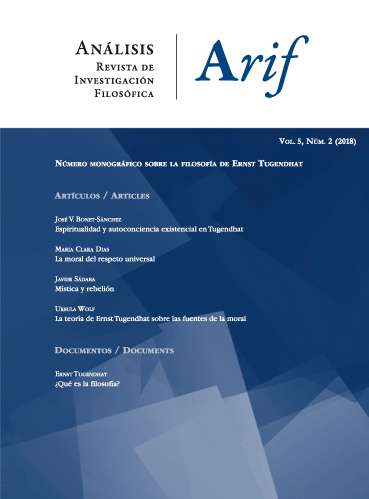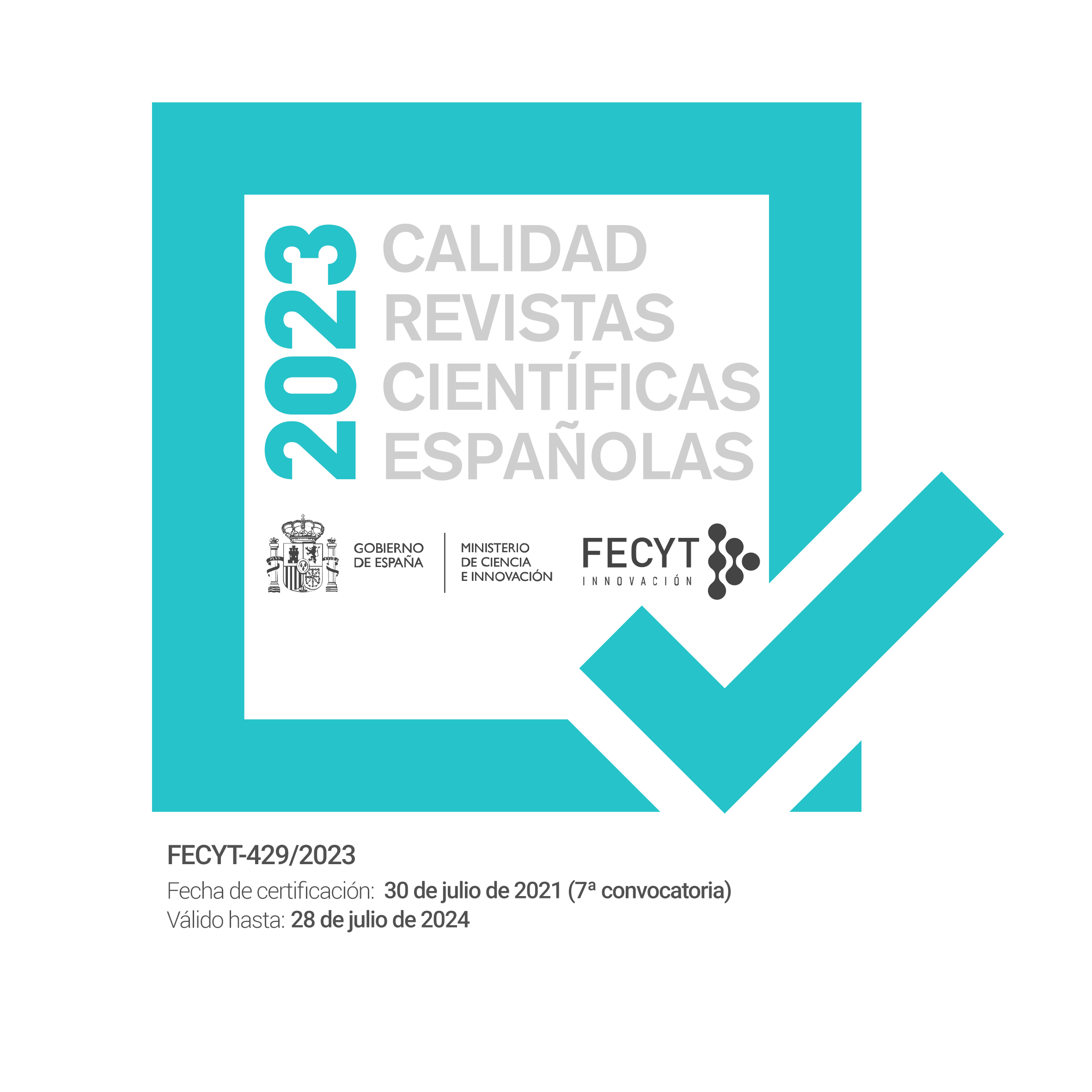Spirituality and existential Self-Consciousness in Tugendhat
DOI:
https://doi.org/10.26754/ojs_arif/a.rif.201823291Abstract
Philosophy of religion and mysticism of the latest Tugendhat belong to the centre of his anthropological period but are related to the whole of his previous work. The anthropological roots of spirituality lie in practical or existential self-consciousness, which refers to our life in its entirety and is exposed —Heideggerian more— to contingency. According to Tugendhat, contingency elicits religion, with its beliefs in spiritual beings (that he strongly rejects), and several forms of impersonal oriental mysticisms, such as Buddhism and Tao, which mitigate the voracity of an egotistical self. This paper analyses the Tugendhatian theorization of both phenomena and dicusses his argument in favour of atheism for the sake of “intellectual honesty”, as well as his claim of adoptng mystical doctrines but only from their practical-existential aspect.
Downloads
Downloads
Published
How to Cite
Issue
Section
License
Los autores que publican en esta revista están de acuerdo con los siguientes términos: los autores conservan los derechos de autor y garantizan a la revista el derecho de ser la primera publicación del trabajo al igual que licenciado bajo una Creative Commons Reconocimiento-No Comercial-Sin Obra Derivada 4.0 (CC BY-NC-ND) que permite a otros compartir el trabajo con un reconocimiento de la autoría del trabajo y la publicación inicial en esta revista. Los autores pueden establecer por separado acuerdos adicionales para la distribución no exclusiva de la versión de la obra publicada en la revista (por ejemplo, situarlo en un repositorio institucional o publicarlo en un libro), con un reconocimiento de su publicación inicial en esta revista.






